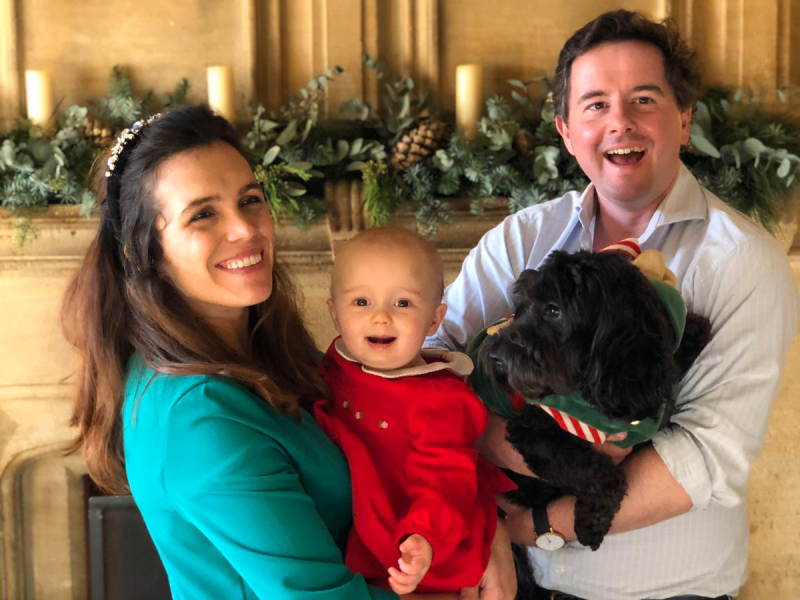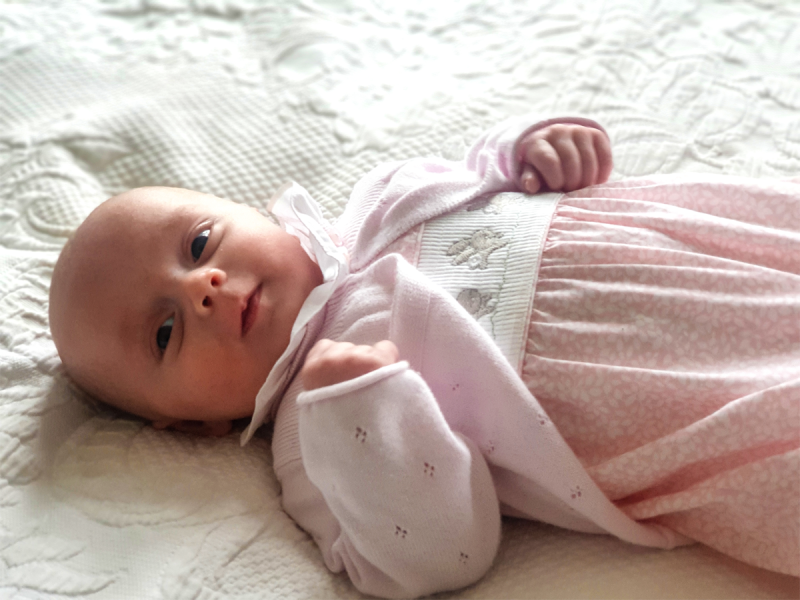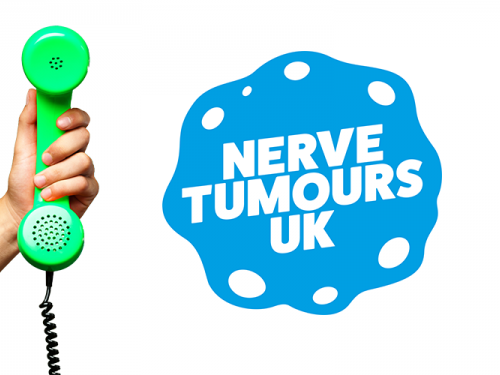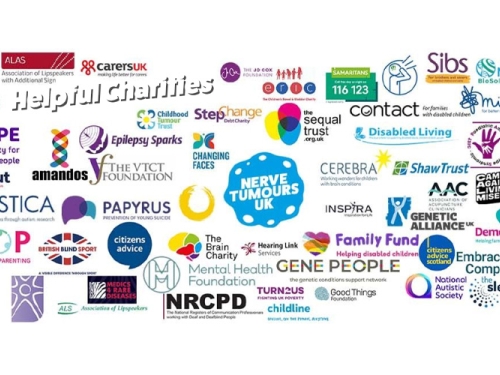Planning for a Family - Elena & Nicks Story
28 May 2020
Elena has NF1, and as she and husband Nick thought about starting a family, they were obviously concerned about passing NF1 on to their baby. Here Elena describes their journey using Preimplantation Genetic Diagnosis (PGD).
I was born with Neurofibromatosis Type 1. I have numerous café au lait marks and have had several operations to remove plexiform neurofibromas. However, I have been lucky and am only mildly affected by it. In 2016 I married Nick and we wanted to start a family. After much discussion and research, we decided that we did not want to risk passing NF1 on to a child. So, with the help of Guys’ Hospital, we decided to try Preimplantation Genetic Diagnosis (PGD) to have a baby.
PGD is a type of IVF which aims to avoid passing on a genetic condition. Embryos are created outside of the body and tested; embryos not affected are then placed back into the womb in the hope a pregnancy occurs. The first stage involved multiple appointments, numerous forms, various tests and starting injections to increase egg production. Initially the injections were scary, but we soon got into a rhythm with Nick doing the jabs for me. The onslaught of hormones meant that my emotions were up and down, however, I was distracted by the arrival of our puppy who seemingly sent my ovaries into overdrive. I ended up having 29 eggs extracted and 14 of those were successfully fertilised and sent off to be biopsied. I was sedated for the extraction and felt quite sore for a few days, but it was manageable.
After six months, we learnt that ten embryos were tested and four did not carry NF1 and were suitable for implantation. An amazing result, we were thrilled. The second stage was to start the medication for the embryo transfer and have regular scans. This included a nasal spray, hormone patches and pills. The most memorable
side-effect was unbelievably itchy skin.
Then I was ready for the transfer. It all took place in a sci-fi like room and everything seemed a little unreal, we met our embryo – apparently somewhere in a long thin tube. The Head Consultant came in and the process was all over in flash. It was uncomfortable but no worse than a smear test. Following the transfer, we had a two week wait before taking a pregnancy test. This was tough but we tried to remain relaxed and not over-think it. It was not easy and there were some scary moments when I thought it was all over. I woke up at 6am on the morning of the test and it was positive. I couldn’t believe it, we were in a state of shock, the last year of appointments, tests and medications all leading us here.
Our daughter Evie was born on 5th February 2019.
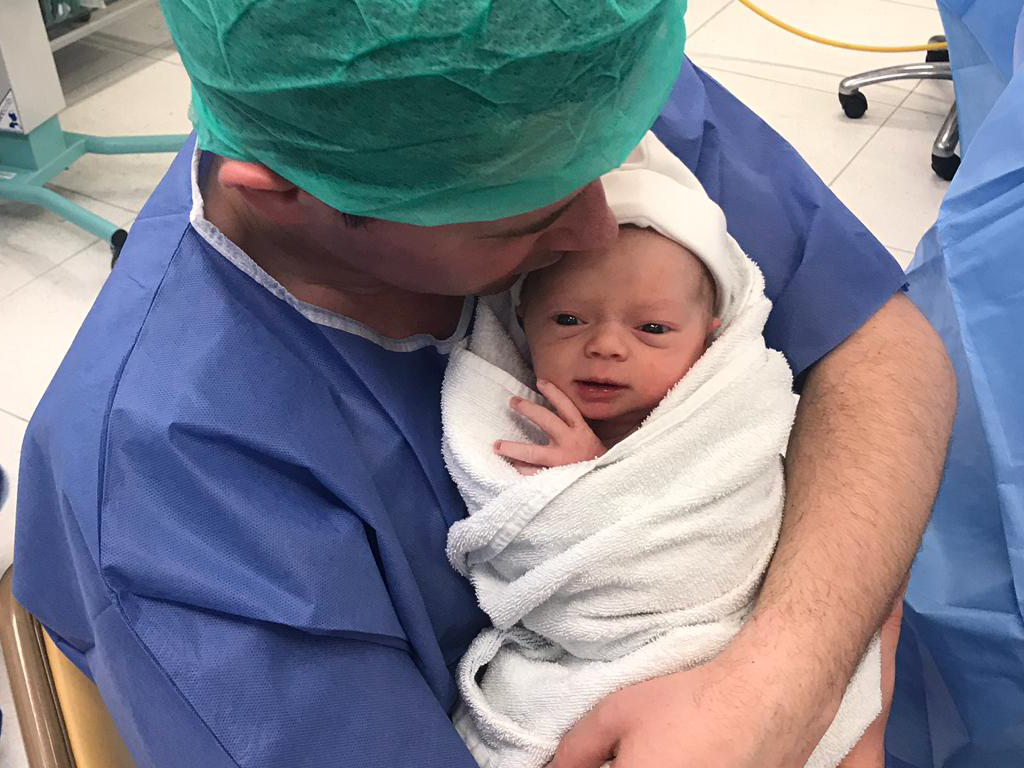
She is extremely happy, healthy and quite a handful now as she approaches her first birthday. I am incredibly grateful for the brilliant team at Guy’s Hospital, both in the Assisted Conception Unit and the NF Clinic. Before we started the PGD process we were nervous, aware of the success rates and how tough it can be. We were lucky it worked on the first attempt. The process was hard from managing expectations, appointments, medication and its side effects to riding a roller coaster of hormones and uncertainty. However, it was also an incredible journey. The science behind it is extraordinary as is the care available. The process brought us closer together, we were relaxed, supporting each other, trying to inject fun into each hospital visit and taking the time to sit down and chat.
– Elena"My top tips would be not to obsess over statistics, avoid online chat groups and Google dives, write your questions down, keep busy, don’t let the process consume you but take the time to look after each other, relax and keep everything crossed, it might just work."
If you would like to discuss this topic further, in the first instance please contact your GP and ask for a referral to your local Clinical Genetics Unit or a local genetic counsellor. You can find further information on the following Guy’s and St Thomas website: bit.ly/ntuk-pgd.
The Birmingham Women’s and Children’s Hospital also have a really good leaflet on options for testing during pregnancy: bit.ly/ntuk-bwch. You can also ring our helpline: 07939 046 030.

